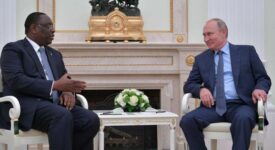Morocco, the only country in Africa that was not a member of the African Union, rejoined the continental body after more than 30 years of exclusion. Rabat left the Union’s predecessor, the Organization of African Unity, in 1984 in protest after a majority of the Member States recognized the independence of the disputed territory of Western Sahara. The move has been welcomed by the international community as a great opportunity to work on a lasting and peaceful solution to the territorial dispute.
The European Union immediately issued a statement praising decision by the African Union to reintegrate Morocco as a Member State thus uniting the whole African continent within its regional organization. Brussels reminded that regional cooperation and integration are crucial for prosperity, stability and peace. “We look forward to working with the African Union and Morocco to strengthen the EU’s growing partnership with Africa,” said the spokesman of the EU foreign policy chief, Federica Mogherini. For Brussels, the readmission of Morocco to the African Union “brings together the entire African continent within its regional organization,” she added.
Geo-politics and, more specifically, geo-economics, is possibly one of the key reasons for Morocco’s return to the African Union’s fold. Morocco has recently shifted from its area of influence in the Sahel and West Africa to East Africa, which was also demonstrated by a diplomatic tour around the region by King Mohammed VI that was widely seen as an attempt to renew and strengthen political ties with this part of the continent. In light with this development, Moroccan businesses have increasingly made significant investments all across Africa in everything from housing projects to financial services to fertilizer plants.
“Africa is indispensable to Morocco and Morocco is indispensable to Africa,” King Mohammed VI said, thus clearly indicating that his country’s political and economic offensive around Africa is just in its initial stages. Last, but not the least, in light of the stagnant European markets to the north, the latest move by Morocco, a relatively liberalized economy and a traditionally trusted Western ally, could also be as an attempt to reduce its economic dependence on the EU by trying to shift its attention more to the markets of the fast-growing African economies to the south.







